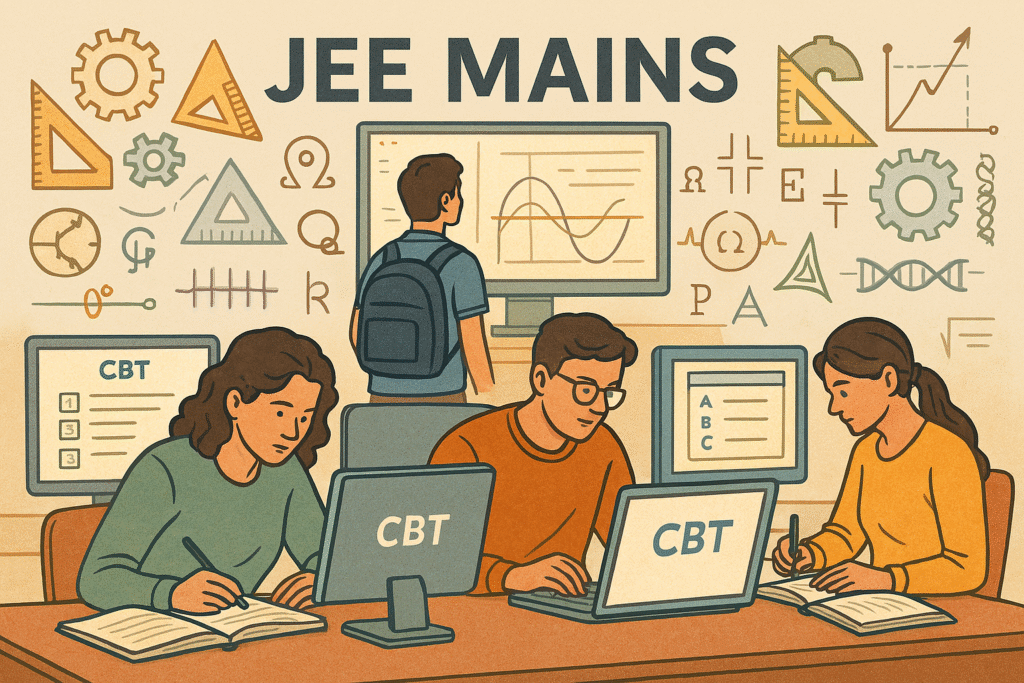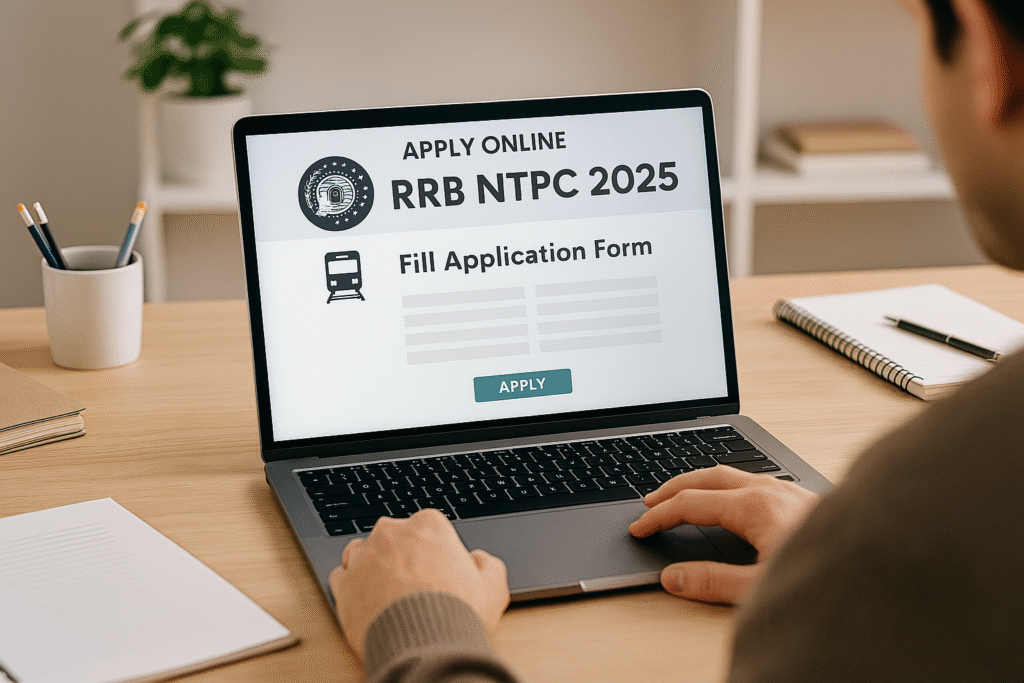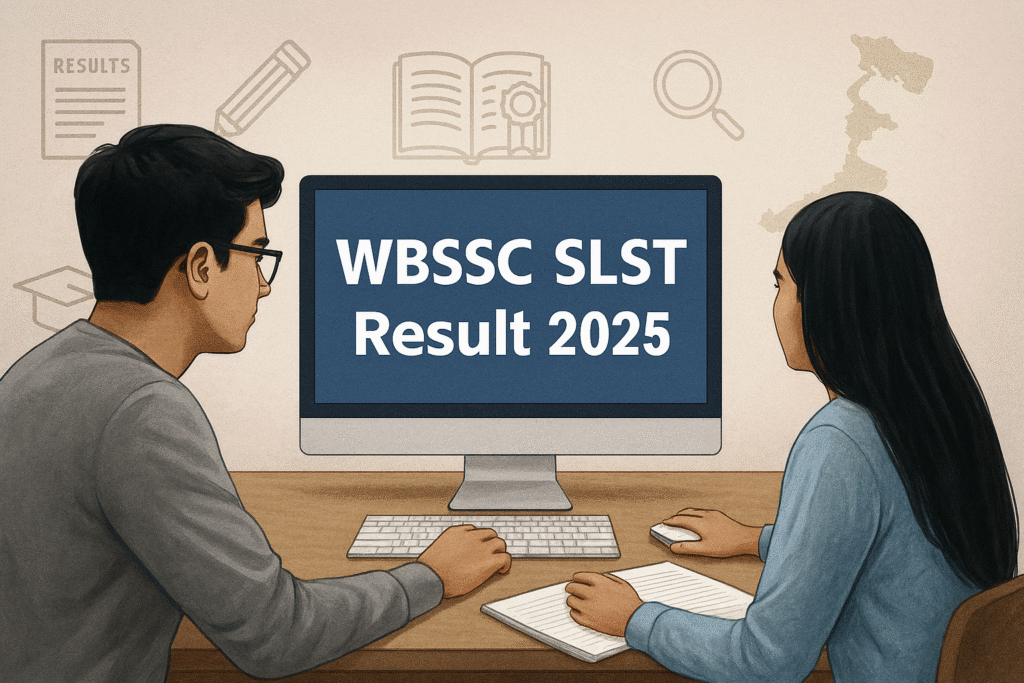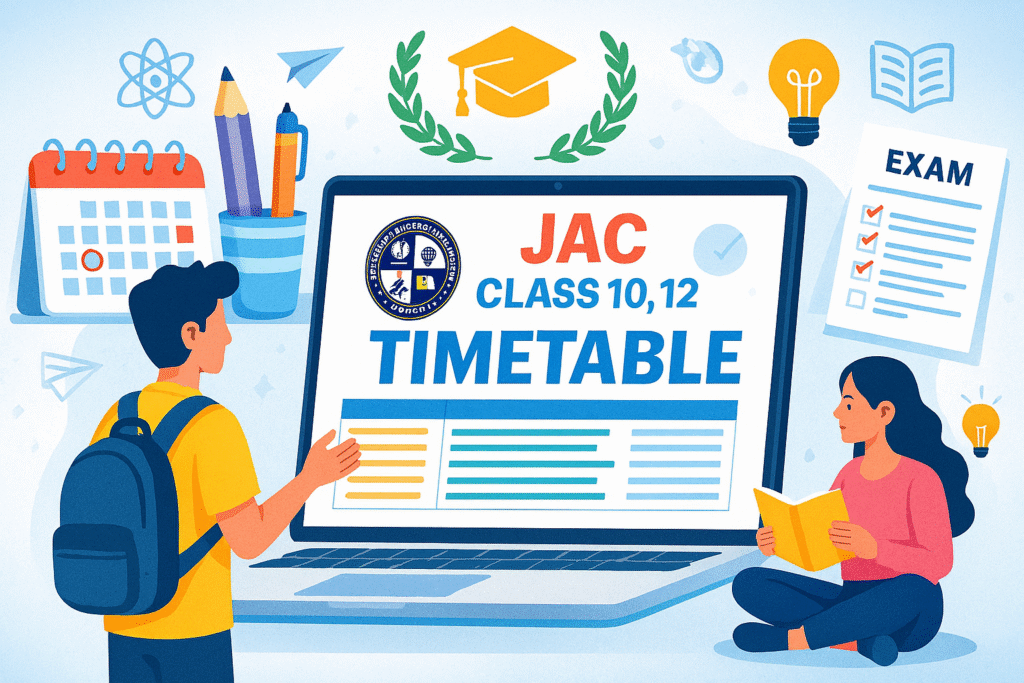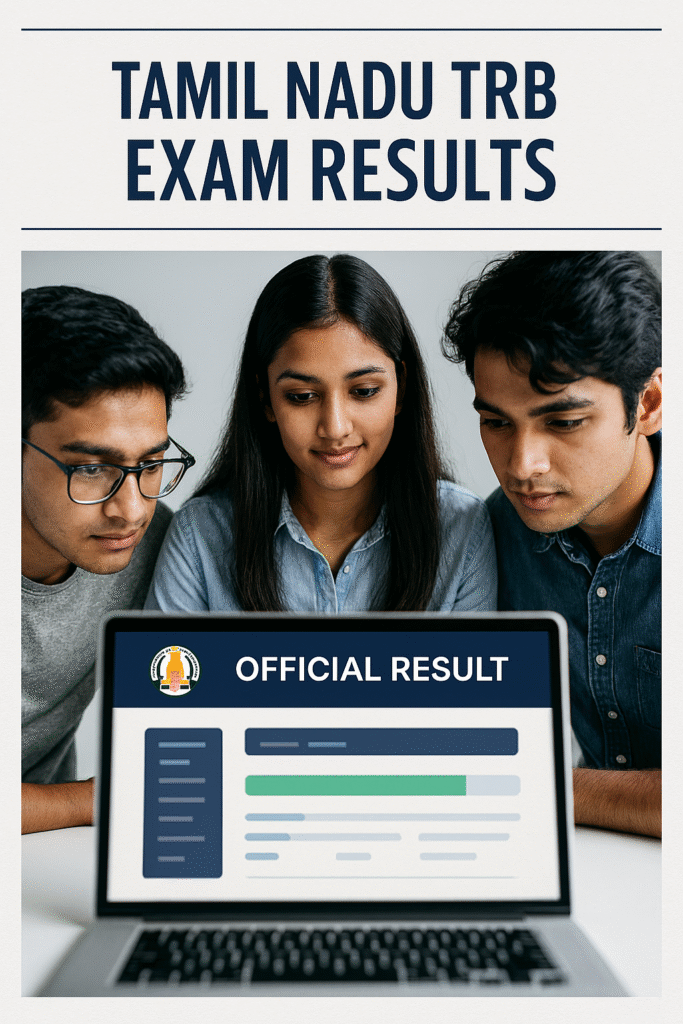This comprehensive guide explores all major BTech courses, their career opportunities, salary prospects, and essential skills needed to secure high-paying jobs in 2026. Learn which engineering branch aligns with your interests and how to become job-ready during your BTech journey.

Table of Contents
Introduction
Choosing the right BTech course is one of the most critical decisions that shapes your professional future. With over 15 lakh engineering students graduating every year in India, understanding BTech branches, emerging career paths, and in-demand skills has become more important than ever.
Many students select engineering courses based on peer pressure, college rankings, or family expectations without truly understanding what each branch offers. This guide will help you make an informed decision by exploring every major BTech specialization, the career opportunities they unlock, realistic salary expectations, and most importantly—the specific skills you need to learn during your four years to become genuinely job-ready in 2026 and beyond.
Whether you’re a Class 12 student preparing for entrance exams or a current BTech student planning your career, this guide covers everything you need to know about BTech courses, career paths, and BTech skills for jobs.
Detailed Explanation of Each BTech Course
1. Computer Science Engineering (CSE)
What the Course Covers: CSE focuses on programming, algorithms, data structures, computer architecture, operating systems, databases, software engineering, computer networks, artificial intelligence, and machine learning fundamentals. Students learn both theoretical concepts and practical implementation of computing systems.
Top Job Roles:
- Software Developer/Engineer
- Full Stack Developer
- Backend/Frontend Developer
- Mobile App Developer
- DevOps Engineer
- Cloud Engineer
- Product Manager
- Technical Consultant
Career Path: Junior Developer → Senior Developer → Team Lead → Technical Architect/Engineering Manager → CTO (in startups) or VP Engineering (in corporations). Alternative paths include Product Management or independent consulting.
Salary Range: Entry-level: ₹3.5-8 LPA | Mid-level (3-5 years): ₹8-18 LPA | Senior-level (8+ years): ₹20-50 LPA+
Skills Required to Get Jobs:
- Programming Languages: Java, Python, C++, JavaScript
- Data Structures & Algorithms (DSA)
- Object-Oriented Programming (OOP)
- Database Management: SQL, MongoDB
- Version Control: Git, GitHub
- Web Technologies: HTML, CSS, React, Node.js
- Problem-solving and analytical thinking
- Communication and teamwork skills
What Students Should Learn During BTech: Focus on mastering at least two programming languages deeply. Practice coding daily on platforms like LeetCode, HackerRank, and CodeChef. Build 5-10 real projects and host them on GitHub. Learn frameworks like React, Django, or Spring Boot. Participate in hackathons and open-source contributions. Complete internships starting from second year. Develop soft skills through presentations and group projects.
Best Industries That Hire: IT Services (TCS, Infosys, Wipro), Product Companies (Google, Microsoft, Amazon), Startups, Banking & Finance, E-commerce, Healthcare Tech, EdTech, Gaming
2. Information Technology (IT)
What the Course Covers: IT emphasizes software development, networking, cybersecurity, database management, web technologies, cloud computing, IT infrastructure, and system administration. It’s more application-focused compared to CSE’s theoretical depth.
Top Job Roles:
- Software Developer
- System Administrator
- Network Engineer
- IT Consultant
- Database Administrator
- Technical Support Engineer
- IT Project Manager
- Business Analyst
Career Path: IT Analyst → Senior Developer/Administrator → IT Manager → IT Director → Chief Information Officer (CIO)
Salary Range: Entry-level: ₹3-7 LPA | Mid-level: ₹7-15 LPA | Senior-level: ₹15-40 LPA
Skills Required to Get Jobs:
- Programming: Python, Java, PHP
- Web Development: HTML, CSS, JavaScript, React
- Database: MySQL, Oracle, PostgreSQL
- Networking fundamentals
- Cloud platforms: AWS, Azure, Google Cloud
- Linux/Unix administration
- ITIL framework knowledge
- Communication and client management
What Students Should Learn During BTech: Master web development stacks (MERN or LAMP). Get certified in cloud platforms (AWS Solutions Architect or Azure Fundamentals). Learn networking concepts thoroughly. Build full-stack projects with database integration. Understand Agile methodologies. Gain experience with DevOps tools like Docker and Jenkins. Complete industry internships focused on real IT operations.
Best Industries That Hire: IT Consulting Firms, Banking Sector, Insurance Companies, Government Projects, Healthcare Systems, Retail Tech, Telecommunications
3. Electronics & Communication Engineering (ECE)
What the Course Covers: ECE covers analog and digital electronics, microprocessors, embedded systems, signal processing, communication systems, VLSI design, wireless communications, and IoT. It bridges hardware and software domains.
Top Job Roles:
- VLSI Design Engineer
- Embedded Systems Engineer
- Telecommunications Engineer
- Network Planning Engineer
- Hardware Design Engineer
- Signal Processing Engineer
- IoT Developer
- Electronics Design Engineer
Career Path: Junior Engineer → Senior Engineer → Technical Lead → Design Architect → Chief Engineer/Technical Director
Salary Range: Entry-level: ₹3-6 LPA | Mid-level: ₹6-12 LPA | Senior-level: ₹12-25 LPA
Skills Required to Get Jobs:
- Circuit design and analysis
- Microcontroller programming (Arduino, Raspberry Pi)
- Embedded C/C++
- VLSI tools: Cadence, Synopsys
- MATLAB for signal processing
- PCB design tools: Eagle, Altium
- Communication protocols: I2C, SPI, UART
- Problem-solving and analytical skills
What Students Should Learn During BTech: Focus on practical electronics through lab work and personal projects. Learn embedded systems programming thoroughly. Get hands-on with IoT projects using Arduino and Raspberry Pi. Study VLSI design if interested in chip design careers. Learn Python for automation. Build a portfolio showcasing hardware projects. Pursue internships in electronics companies or R&D labs.
Best Industries That Hire: Semiconductor Companies (Intel, Qualcomm, TSMC), Telecommunications (Jio, Airtel, Nokia), Consumer Electronics, Automotive Electronics, Defense & Aerospace, IoT Companies
4. Electrical & Electronics Engineering (EEE)
What the Course Covers: EEE focuses on power systems, electrical machines, control systems, power electronics, renewable energy, electrical circuit theory, instrumentation, and automation. It deals with generation, transmission, and distribution of electrical energy.
Top Job Roles:
- Electrical Engineer
- Power Systems Engineer
- Control Systems Engineer
- Automation Engineer
- Renewable Energy Engineer
- Instrumentation Engineer
- Maintenance Engineer
- Energy Consultant
Career Path: Assistant Engineer → Engineer → Senior Engineer → Project Manager → Chief Electrical Engineer/Operations Manager
Salary Range: Entry-level: ₹3-5.5 LPA | Mid-level: ₹6-12 LPA | Senior-level: ₹12-22 LPA
Skills Required to Get Jobs:
- Power system analysis
- Electrical circuit design
- AutoCAD for electrical drawings
- PLC programming (Siemens, Allen Bradley)
- MATLAB/Simulink
- SCADA systems
- Knowledge of electrical codes and standards
- Safety protocols and compliance
- Project management skills
What Students Should Learn During BTech: Gain practical exposure to power plants and substations through industrial visits. Learn PLC and SCADA programming for automation careers. Get certified in AutoCAD Electrical. Study renewable energy technologies deeply as the sector is growing. Complete internships in power companies or manufacturing plants. Learn project estimation and tendering for core jobs. Develop communication skills for client interactions.
Best Industries That Hire: Power Generation Companies (NTPC, Tata Power), Electrical Equipment Manufacturers (ABB, Siemens), Construction Companies, Renewable Energy Firms, Oil & Gas, Railways, Manufacturing Industries
5. Mechanical Engineering
What the Course Covers: Mechanical Engineering includes thermodynamics, fluid mechanics, manufacturing processes, machine design, CAD/CAM, robotics, automotive engineering, and materials science. It’s one of the most versatile engineering branches.
Top Job Roles:
- Mechanical Design Engineer
- Production Engineer
- Quality Control Engineer
- Maintenance Engineer
- Automotive Engineer
- CAD/CAM Engineer
- Project Engineer
- Manufacturing Engineer
Career Path: Junior Engineer → Engineer → Senior Engineer → Engineering Manager → Plant Manager/Chief Engineer
Salary Range: Entry-level: ₹3-5 LPA | Mid-level: ₹5-10 LPA | Senior-level: ₹10-20 LPA
Skills Required to Get Jobs:
- CAD software: AutoCAD, SolidWorks, CATIA, Creo
- Manufacturing processes knowledge
- GD&T (Geometric Dimensioning and Tolerancing)
- FEA tools: ANSYS, Abaqus
- Engineering drawing and design
- Quality control methods (Six Sigma)
- Project management
- Communication and teamwork
What Students Should Learn During BTech: Master at least one CAD software (SolidWorks recommended for beginners). Complete internships in manufacturing companies. Learn about Industry 4.0 and automation. Get Six Sigma certification. Build practical projects like go-karts or drones. Participate in competitions like BAJA or Formula Student. Understand production planning and supply chain basics. Develop presentation skills for design reviews.
Best Industries That Hire: Automobile Industry (Maruti, Tata Motors, Mahindra), Heavy Machinery, Aerospace, Manufacturing Companies, Oil & Gas, FMCG, Consulting Firms, HVAC Companies
6. Civil Engineering
What the Course Covers: Civil Engineering covers structural engineering, construction management, geotechnical engineering, transportation engineering, hydraulics, environmental engineering, surveying, and building materials. It focuses on infrastructure development.
Top Job Roles:
- Site Engineer
- Structural Engineer
- Project Manager
- Construction Manager
- Quality Control Engineer
- Urban Planner
- Estimation Engineer
- Consultant
Career Path: Assistant Site Engineer → Site Engineer → Project Engineer → Project Manager → Chief Engineer/Director
Salary Range: Entry-level: ₹2.5-4.5 LPA | Mid-level: ₹5-10 LPA | Senior-level: ₹10-25 LPA (can be much higher in Gulf countries)
Skills Required to Get Jobs:
- Structural design: STAAD Pro, ETABS, SAP2000
- AutoCAD for civil drawings
- Project management: MS Project, Primavera
- Quantity estimation and costing
- Knowledge of building codes and standards
- Site supervision and quality control
- Communication with contractors and clients
- Problem-solving under pressure
What Students Should Learn During BTech: Master AutoCAD and at least one structural analysis software. Complete multiple site internships to understand practical construction. Learn project management methodologies. Get familiar with contract management and tendering. Study green building concepts (LEED, GRIHA). Develop negotiation and team management skills. Understand real estate regulations. Consider pursuing certification in project management (PMP) later.
Best Industries That Hire: Construction Companies (L&T, Shapoorji Pallonji), Infrastructure Development Firms, Real Estate Companies, Government Projects (PWD, NHAI), Consulting Firms, Urban Development Authorities
7. Artificial Intelligence & Machine Learning
What the Course Covers: AI & ML specialization covers machine learning algorithms, deep learning, neural networks, natural language processing, computer vision, reinforcement learning, data science, Python programming, and AI ethics.
Top Job Roles:
- Machine Learning Engineer
- AI Research Scientist
- Data Scientist
- NLP Engineer
- Computer Vision Engineer
- AI Product Manager
- MLOps Engineer
- AI Consultant
Career Path: Junior ML Engineer → ML Engineer → Senior ML Engineer → ML Architect/Research Scientist → Head of AI/ML
Salary Range: Entry-level: ₹5-12 LPA | Mid-level: ₹12-25 LPA | Senior-level: ₹25-60 LPA+
Skills Required to Get Jobs:
- Python programming (NumPy, Pandas, Scikit-learn)
- Machine Learning frameworks: TensorFlow, PyTorch, Keras
- Deep Learning architectures
- Mathematics: Linear Algebra, Statistics, Calculus
- Data preprocessing and feature engineering
- Model deployment (Flask, FastAPI)
- Cloud platforms: AWS SageMaker, Azure ML
- Communication of technical concepts
What Students Should Learn During BTech: Build a strong foundation in mathematics and statistics. Complete multiple ML projects covering classification, regression, NLP, and computer vision. Participate in Kaggle competitions. Learn deployment pipelines and MLOps. Read research papers regularly. Contribute to open-source AI projects. Complete specialized courses from Coursera, deeplearning.ai, or fast.ai. Build a strong GitHub portfolio. Pursue research internships or publications.
Best Industries That Hire: Tech Giants (Google, Microsoft, Amazon), AI Startups, Finance & Banking, Healthcare & Pharma, E-commerce, Automotive (autonomous vehicles), Consulting Firms, Research Labs
8. Data Science
What the Course Covers: Data Science combines statistics, data mining, machine learning, big data analytics, data visualization, business intelligence, predictive modeling, and database management to extract insights from data.
Top Job Roles:
- Data Scientist
- Data Analyst
- Business Intelligence Analyst
- Data Engineer
- Analytics Consultant
- Quantitative Analyst
- Market Research Analyst
- Data Visualization Specialist
Career Path: Junior Data Analyst → Data Scientist → Senior Data Scientist → Lead Data Scientist → Chief Data Officer
Salary Range: Entry-level: ₹4-10 LPA | Mid-level: ₹10-20 LPA | Senior-level: ₹20-45 LPA
Skills Required to Get Jobs:
- Programming: Python, R, SQL
- Statistical analysis and hypothesis testing
- Machine Learning basics
- Data visualization: Tableau, Power BI, Matplotlib
- Big Data tools: Hadoop, Spark
- Excel (advanced functions)
- Business acumen and storytelling with data
- Communication and presentation skills
What Students Should Learn During BTech: Master SQL for database querying. Learn Python libraries like Pandas, NumPy, Matplotlib, and Seaborn. Build end-to-end data science projects from data collection to insights. Practice on real datasets from Kaggle or government portals. Learn A/B testing and experimental design. Get certified in Tableau or Power BI. Understand business metrics across industries. Develop the ability to communicate insights to non-technical stakeholders. Complete analytics internships.
Best Industries That Hire: E-commerce Companies, Finance & Banking, Healthcare Analytics, Marketing Agencies, Consulting Firms (McKinsey, BCG), Social Media Companies, Retail, Insurance
9. Cybersecurity
What the Course Covers: Cybersecurity specialization covers network security, cryptography, ethical hacking, penetration testing, security operations, malware analysis, cloud security, incident response, and security compliance frameworks.
Top Job Roles:
- Cybersecurity Analyst
- Ethical Hacker/Penetration Tester
- Security Operations Center (SOC) Analyst
- Security Consultant
- Information Security Manager
- Incident Response Specialist
- Security Architect
- Forensics Analyst
Career Path: Junior Security Analyst → Security Analyst → Senior Security Engineer → Security Architect → Chief Information Security Officer (CISO)
Salary Range: Entry-level: ₹4-8 LPA | Mid-level: ₹8-18 LPA | Senior-level: ₹18-40 LPA+
Skills Required to Get Jobs:
- Networking fundamentals (TCP/IP, DNS, firewalls)
- Linux/Unix operating systems
- Programming: Python, Bash scripting
- Security tools: Wireshark, Metasploit, Nmap, Burp Suite
- Understanding of OWASP Top 10
- Cloud security (AWS, Azure)
- Certifications: CEH, CompTIA Security+, CISSP
- Analytical and problem-solving skills
What Students Should Learn During BTech: Get hands-on with Kali Linux and security tools. Practice on platforms like Hack The Box, TryHackMe, and OverTheWire. Pursue certifications like CEH or CompTIA Security+ early. Learn multiple programming languages. Understand compliance standards (ISO 27001, GDPR). Participate in CTF (Capture The Flag) competitions. Complete security internships or bug bounty programs. Stay updated with latest vulnerabilities and attacks. Build a blog documenting your learning journey.
Best Industries That Hire: IT Security Companies, Banking & Finance, Government Agencies, Defense Sector, Healthcare Organizations, Consulting Firms, Tech Companies, Telecom Sector
10. Biotechnology
What the Course Covers: Biotechnology merges biology with technology, covering genetic engineering, bioinformatics, molecular biology, microbiology, bioprocess engineering, pharmaceutical biotechnology, and agricultural biotechnology.
Top Job Roles:
- Biotechnology Research Scientist
- Bioprocess Engineer
- Quality Control Analyst
- Clinical Research Associate
- Bioinformatics Specialist
- Regulatory Affairs Officer
- Production Supervisor
- R&D Scientist
Career Path: Research Assistant → Scientist → Senior Scientist → Research Manager → Director of Research/Head of Department
Salary Range: Entry-level: ₹2.5-5 LPA | Mid-level: ₹5-10 LPA | Senior-level: ₹10-20 LPA (Higher with M.Tech/Ph.D.)
Skills Required to Get Jobs:
- Laboratory techniques and protocols
- Molecular biology methods (PCR, gel electrophoresis)
- Bioinformatics tools: BLAST, ClustalW
- Data analysis: R, Python
- Good Manufacturing Practices (GMP)
- Documentation and report writing
- Regulatory knowledge
- Attention to detail and patience
What Students Should Learn During BTech: Gain extensive lab experience through projects and internships. Learn bioinformatics programming (Python, R, Perl). Stay updated with latest research by reading journals. Complete summer training in pharmaceutical companies or research institutes. Consider pursuing higher studies (M.Tech/M.Sc./Ph.D.) for better opportunities. Learn about patents and intellectual property. Develop technical writing skills for research papers. Network with researchers and attend conferences.
Best Industries That Hire: Pharmaceutical Companies (Dr. Reddy’s, Sun Pharma, Biocon), Research Institutes (CSIR, ICMR), Biotech Startups, Agriculture Companies, Food Processing Industries, Environmental Consulting
11. Chemical Engineering
What the Course Covers: Chemical Engineering includes chemical reaction engineering, process design, thermodynamics, fluid mechanics, heat and mass transfer, process control, petroleum refining, and chemical plant operations.
Top Job Roles:
- Process Engineer
- Production Engineer
- Quality Assurance Engineer
- Plant Manager
- Process Safety Engineer
- R&D Engineer
- Environmental Engineer
- Process Control Engineer
Career Path: Assistant Engineer → Process Engineer → Senior Engineer → Plant Manager → Operations Director
Salary Range: Entry-level: ₹3.5-6 LPA | Mid-level: ₹6-12 LPA | Senior-level: ₹12-25 LPA
Skills Required to Get Jobs:
- Process simulation: Aspen Plus, HYSYS
- Knowledge of unit operations
- Chemical process safety
- Process optimization techniques
- AutoCAD for P&ID drawings
- Project management
- Understanding of environmental regulations
- Problem-solving and analytical skills
What Students Should Learn During BTech: Master process simulation software through hands-on practice. Complete plant internships to understand industrial operations. Study process safety management thoroughly. Learn about Industry 4.0 and process automation. Understand petroleum refining if interested in oil & gas. Get familiar with environmental compliance standards. Develop project management skills. Consider pursuing higher education for research roles. Build practical understanding of equipment and operations.
Best Industries That Hire: Petroleum & Refining (ONGC, Reliance, BPCL), Chemical Manufacturing (BASF, Dow), Pharmaceutical Companies, Fertilizer Industries, Food Processing, Consulting Firms, Environmental Services
12. Aerospace Engineering
What the Course Covers: Aerospace Engineering covers aerodynamics, aircraft structures, propulsion systems, flight mechanics, avionics, spacecraft design, materials science, and computational fluid dynamics.
Top Job Roles:
- Aerospace Design Engineer
- Aircraft Maintenance Engineer
- Propulsion Engineer
- Flight Test Engineer
- Structural Analysis Engineer
- Systems Engineer
- Research Scientist
- Technical Consultant
Career Path: Junior Engineer → Engineer → Senior Engineer → Lead Engineer → Chief Engineer/Technical Director
Salary Range: Entry-level: ₹4-7 LPA | Mid-level: ₹7-15 LPA | Senior-level: ₹15-30 LPA+
Skills Required to Get Jobs:
- CAD software: CATIA, SolidWorks, Unigraphics
- CFD tools: ANSYS Fluent, Star-CCM+
- FEA analysis
- MATLAB/Simulink
- Knowledge of aerospace standards
- Aerodynamics and flight dynamics
- Programming (Python, C++)
- Attention to detail and precision
What Students Should Learn During BTech: Master aerospace-specific CAD software like CATIA. Learn CFD and FEA tools through projects. Join aerospace clubs and build UAVs or drones. Participate in SAE Aero Design competitions. Complete internships at ISRO, DRDO, HAL, or private aerospace companies. Study for GATE to access PSU jobs or higher studies. Learn programming for avionics. Understand aircraft regulations and certification processes. Consider specializing in avionics, propulsion, or structures based on interest.
Best Industries That Hire: Space Organizations (ISRO, SpaceX collaborations), Defense (DRDO, HAL), Airlines (Air India, IndiGo – maintenance), Aerospace Manufacturers, Research Organizations, Drone Companies, Consulting Firms
How to Choose the Right BTech Course?
Selecting the right BTech specialization requires careful consideration of multiple factors:
1. Personal Interest and Passion: Choose a field that genuinely excites you. Engineering requires four years of intense study, and passion will keep you motivated through challenging times. If you love coding and problem-solving, go for CSE or IT. If you’re fascinated by electronics and hardware, consider ECE or EEE. Interest in structures and infrastructure points toward Civil Engineering.
2. Aptitude and Natural Skills: Assess your strengths honestly. Strong mathematical and logical thinking suits CSE, AI/ML, and Data Science. Good spatial visualization helps in Mechanical, Civil, and Aerospace. Interest in chemistry and processes fits Chemical Engineering. Biological sciences affinity suggests Biotechnology.
3. Job Market and Employment Opportunities: Research current job trends. Software engineering (CSE, IT, AI/ML) has the highest number of openings. Core engineering branches (Mechanical, Civil, EEE) have stable but fewer openings. Emerging fields like Cybersecurity and Data Science show rapid growth. Check placement statistics of colleges you’re targeting.
4. Salary Expectations: While money shouldn’t be the only factor, it matters. Software roles generally offer higher starting salaries (₹5-15 LPA for good candidates). Core engineering starts lower (₹3-6 LPA) but can grow significantly with experience. Specialized fields like AI/ML and Cybersecurity command premium salaries for skilled professionals.
5. Growth Potential and Future Scope: Consider long-term career prospects. AI/ML, Data Science, and Cybersecurity are growing exponentially. Software engineering remains consistently strong. Traditional core engineering is stable but growing slowly. Biotechnology requires higher education for better opportunities. Aerospace is niche but has steady demand.
6. Higher Education Plans: If you plan to pursue M.Tech or MS abroad, choose a field with strong research opportunities. For MBA aspirations, any branch works, but technical knowledge gives an edge. For government jobs, Civil, Electrical, and Mechanical have more PSU opportunities through GATE.
7. Industry Exposure and Internship Availability: Some branches offer more internship opportunities. Software branches have abundant remote internships. Core engineering requires on-site industrial training. Consider location and accessibility of industries related to your chosen branch.
8. Work-Life Balance Preferences: Software jobs often offer flexibility and remote work options. Core engineering typically involves site work with less flexibility. Think about your lifestyle preferences for the next decade.
Make an informed decision by talking to working professionals, attending college webinars, and researching extensively. Remember, hard work and continuous learning matter more than branch selection—every field offers excellent opportunities for dedicated students.
Future of BTech Careers in India – 2030 Outlook
The engineering landscape is transforming rapidly with technological advancement and changing industry needs. Here’s what the future holds for BTech graduates:
High-Growth Technology Areas:
Artificial Intelligence & Automation: By 2030, AI will be integrated into every industry. Demand for ML engineers, AI specialists, and automation experts will multiply. Traditional roles will require AI knowledge as a complementary skill.
Cybersecurity: With increasing digital threats and data privacy regulations, cybersecurity professionals will be in critical demand. India’s cybersecurity market is expected to reach $35 billion by 2030.
Cloud Computing & DevOps: Cloud-native development and infrastructure management will become standard. Multi-cloud expertise (AWS, Azure, GCP) will be highly valued.
Internet of Things (IoT): Smart cities, industrial IoT, and connected devices will create massive opportunities for electronics and computer science engineers.
Green Technology & Sustainability: Renewable energy, electric vehicles, sustainable construction, and environmental engineering will see exponential growth as India pursues carbon neutrality goals.
Quantum Computing: Though nascent, quantum computing will emerge as a specialized high-paying field requiring physics, mathematics, and computer science expertise.
Biotechnology & Healthcare Tech: Post-pandemic focus on healthcare innovation will drive demand for biotech engineers, bioinformatics specialists, and medical device engineers.
Evolving Career Patterns:
Hybrid Roles: Future engineers will need cross-disciplinary skills. A mechanical engineer might need IoT knowledge, or a civil engineer may require sustainable technology expertise.
Continuous Learning: Traditional degree-based learning won’t suffice. Professionals will need constant upskilling through certifications, online courses, and hands-on projects.
Remote Work Culture: Software and technology roles will continue offering location flexibility, while core engineering will see digital transformation with AR/VR for remote site monitoring.
Entrepreneurship Boom: Engineering graduates will increasingly start their own ventures leveraging technology. Access to funding, mentorship, and digital platforms will make entrepreneurship more accessible.
Gig Economy Growth: Freelancing and contract work will become more common, especially in software, data science, and consulting roles.
India’s Position in Global Market:
India is positioning itself as a global manufacturing hub (Make in India initiative) and a technology powerhouse. Engineering graduates will have opportunities in both domestic growth and international markets. Global capability centers (GCCs) of international companies are expanding rapidly in India, offering world-class opportunities without leaving the country.
Preparing for 2030:
Focus on foundational knowledge but stay updated with emerging technologies. Develop soft skills like communication, adaptability, and leadership. Build a strong online presence through GitHub, LinkedIn, and personal blogs. Network actively and participate in communities. Most importantly, maintain intellectual curiosity and a growth mindset.
The future belongs to engineers who can adapt, learn continuously, and apply technology to solve real-world problems across industries.
Call to Action
Your BTech journey is filled with possibilities, and choosing the right path is just the beginning. This guide provides you with comprehensive information, but your success ultimately depends on your dedication, continuous learning, and adaptability.
We’d love to hear from you!
- Which BTech specialization are you interested in and why?
- What skills are you currently working on to become job-ready?
- Do you have questions about specific career paths or courses?
- Are you a working engineer who wants to share advice with students?
Drop your comments, questions, or experiences below. Your doubts might help other students too, and we’re here to provide personalized guidance. Let’s build a community of ambitious engineers helping each other succeed!
Don’t forget to bookmark this guide and share it with friends who are confused about their BTech choices. Subscribe to our blog for more career guidance, skill development tips, and industry insights.
Frequently Asked Questions (FAQs)
Q1: Which BTech course has the highest job opportunities in 2026?
Computer Science Engineering (CSE), Information Technology, and AI & Machine Learning specializations have the highest number of job openings. The software industry continues to be the largest recruiter of engineering graduates, with lakhs of positions available annually across IT services, product companies, startups, and tech divisions of traditional companies. However, “highest jobs” doesn’t always mean “best for you”—consider your interests and aptitude equally.
Q2: Which engineering branch is best for girls?
This is a common question, but the answer is: ANY branch that matches your interest and skills is suitable for girls. Engineering has no gender-specific barriers. That said, female students often excel in Computer Science, IT, Biotechnology, and Electronics due to strong analytical and detail-oriented skills. However, girls are equally successful in Mechanical, Civil, and all core branches. Choose based on your passion, not stereotypes. Leading companies actively promote diversity and offer equal opportunities regardless of gender.
Q3: What are the top-paying BTech branches in India?
As of 2026, the highest-paying branches are: (1) Artificial Intelligence & Machine Learning (₹5-12 LPA starting, ₹25-60 LPA+ senior), (2) Data Science (₹4-10 LPA starting, ₹20-45 LPA senior), (3) Computer Science Engineering (₹4-10 LPA starting, ₹20-50 LPA+ senior), (4) Cybersecurity (₹4-8 LPA starting, ₹18-40 LPA+ senior), and (5) Information Technology (₹3-7 LPA starting, ₹15-40 LPA senior). However, salary depends heavily on your skills, company, location, and performance—not just your branch.
Q4: Which skills should I learn during BTech to get a good job?
Technical Skills: Programming languages relevant to your branch, domain-specific software tools, data structures and algorithms (for software roles), practical project experience.
Soft Skills: Communication (written and verbal), teamwork and collaboration, problem-solving and analytical thinking, time management, adaptability to new technologies.
Professional Skills: Resume building and LinkedIn optimization, interview preparation (technical and HR), aptitude and reasoning for placement tests, internship experience (minimum 2-3 by graduation).
Start building skills from first year itself—don’t wait until final year placements!
Q5: Is BTech worth it in 2026, or should I consider other options?
BTech remains highly valuable if you’re genuinely interested in technology and engineering. It offers diverse career paths, good earning potential, and opportunities for innovation. However, it’s not for everyone. If you’re passionate about engineering, absolutely go for it. If you’re choosing it just for the “Engineer” tag or parental pressure, reconsider. Alternative paths like BCA (for software), BSc (for research), or professional courses might suit you better. The key is aligning your education with your interests and career goals.
Q6: Can I switch to software jobs from a core engineering branch?
Yes, absolutely! Many students from Mechanical, Civil, EEE, and other core branches transition to software roles through self-learning. Focus on mastering programming languages (Python, Java), data structures, web development, and building projects. Many companies allow branch changes during campus placements if you demonstrate strong coding skills. However, start learning coding from the first year to have enough time for preparation. Platforms like Coursera, Udemy, and YouTube offer excellent free resources.
Q7: Do I need to pursue M.Tech for better career opportunities?
It depends on your branch and career goals. For software branches (CSE, IT), work experience is often more valuable than M.Tech unless you want to go into research or teaching. For core branches (Mechanical, Civil, Chemical) and Biotechnology, M.Tech or MS abroad significantly improves job prospects and salary. For specializations like AI/ML, an M.Tech from premier institutes (IITs) can accelerate your career. Evaluate your goals: higher studies are excellent for research-oriented careers, while immediate jobs build practical experience.
Q8: How important are internships during BTech?
Extremely important! Internships provide practical exposure, industry connections, resume value, and often lead to pre-placement offers (PPOs). Aim for at least 2-3 internships during your BTech—one after second year (learning-focused), one after third year (skill-building), and if possible, a winter internship. Quality matters more than quantity. A meaningful internship at a reputed company or promising startup is better than multiple certificate-collection programs. Start applying early and leverage college training and placement cell, LinkedIn, and platforms like Internshala.
Helpful Resources (Official Only)
Government & Regulatory Bodies:
- AICTE (All India Council for Technical Education): www.aicte-india.org – Official regulator for engineering education in India
- NPTEL (National Programme on Technology Enhanced Learning): nptel.ac.in – Free online courses from IITs and IISc
- Swayam: swayam.gov.in – Government’s online learning platform with free courses and certifications
- Ministry of Education: www.education.gov.in – Information on engineering colleges and policies
Premier Institutes:
- IIT (Indian Institutes of Technology): www.iitbombay.org, www.iitd.ac.in, www.iitkgp.ac.in – Top engineering institutes offering courses and resources
- NIT (National Institutes of Technology): www.nitt.edu, www.nitk.ac.in – Premier technical institutions
- IIIT (Indian Institutes of Information Technology): www.iiit.ac.in – Specialized IT and Computer Science institutes
Skill Development & Learning:
- Coursera: www.coursera.org – University-backed online courses in engineering subjects
- edX: www.edx.org – Free courses from MIT, Harvard, and other top universities
- NIELIT (National Institute of Electronics & IT): www.nielit.gov.in – Government IT training and certifications
- Skill India: www.skillindia.gov.in – Government initiative for skill development programs
Career & Placement Resources:
- NATS (National Apprenticeship Training Scheme): www.apprenticeshipindia.gov.in – Government apprenticeship programs
- LinkedIn Learning: www.linkedin.com/learning – Professional skill courses
- National Career Service: www.ncs.gov.in – Government job portal and career guidance
Research & Innovation:
- CSIR (Council of Scientific and Industrial Research): www.csir.res.in – Research opportunities
- DRDO (Defence Research and Development Organisation): www.drdo.gov.in – Defense research careers
- ISRO (Indian Space Research Organisation): www.isro.gov.in – Space technology careers
Coding Practice Platforms:
- GeeksforGeeks: www.geeksforgeeks.org – Programming tutorials and practice
- HackerRank: www.hackerrank.com – Coding challenges and competitions
- LeetCode: leetcode.com – Interview preparation for software roles




